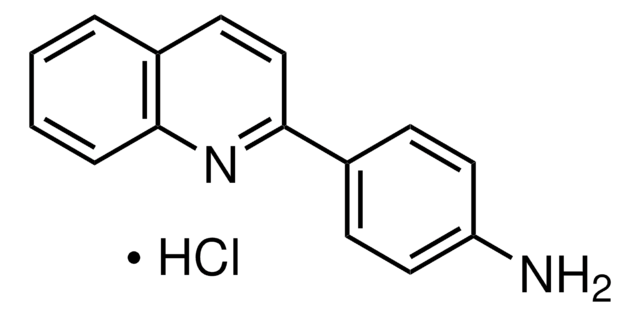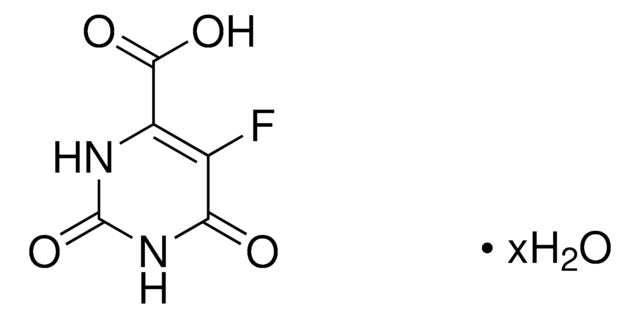I138
1,5-Isoquinolinediol
≥98% (HPLC), powder
Sinónimos:
1,5-Dihydroxyisoquinoline, 5-Hydroxy-1(2H)-isoquinolinone, DiQ
About This Item
Productos recomendados
Análisis
≥98% (HPLC)
formulario
powder
color
white to beige
mp
279-281 °C
solubilidad
DMSO: 20 mg/mL, clear
temp. de almacenamiento
2-8°C
cadena SMILES
Oc1cccc2c(O)nccc12
InChI
1S/C9H7NO2/c11-8-3-1-2-7-6(8)4-5-10-9(7)12/h1-5,11H,(H,10,12)
Clave InChI
LFUJIPVWTMGYDG-UHFFFAOYSA-N
¿Está buscando productos similares? Visita Guía de comparación de productos
Acciones bioquímicas o fisiológicas
Precaución
Código de clase de almacenamiento
11 - Combustible Solids
Clase de riesgo para el agua (WGK)
WGK 3
Equipo de protección personal
dust mask type N95 (US), Eyeshields, Gloves
Certificados de análisis (COA)
Busque Certificados de análisis (COA) introduciendo el número de lote del producto. Los números de lote se encuentran en la etiqueta del producto después de las palabras «Lot» o «Batch»
¿Ya tiene este producto?
Encuentre la documentación para los productos que ha comprado recientemente en la Biblioteca de documentos.
Nuestro equipo de científicos tiene experiencia en todas las áreas de investigación: Ciencias de la vida, Ciencia de los materiales, Síntesis química, Cromatografía, Analítica y muchas otras.
Póngase en contacto con el Servicio técnico






